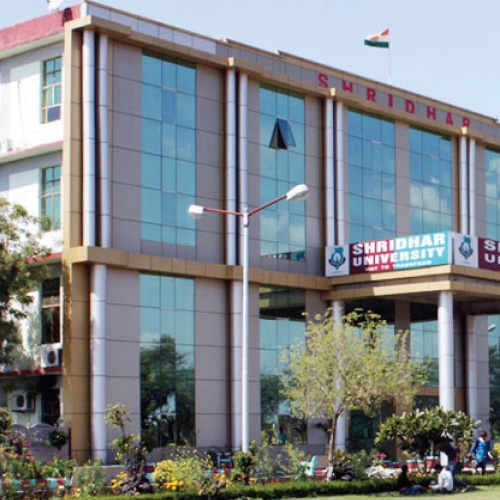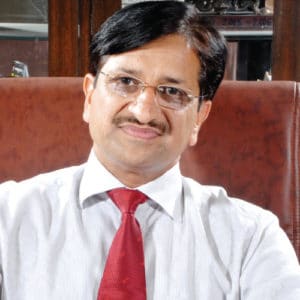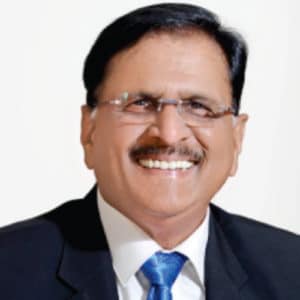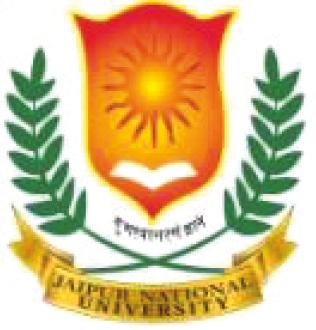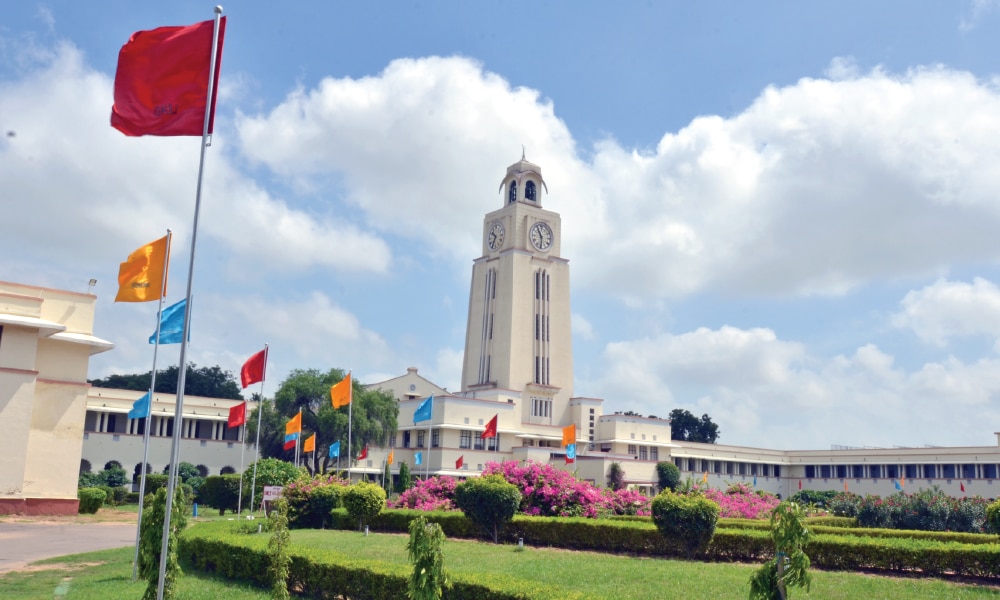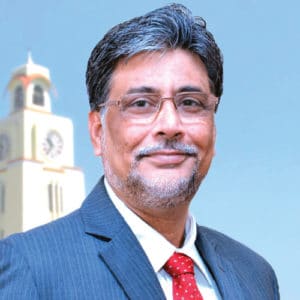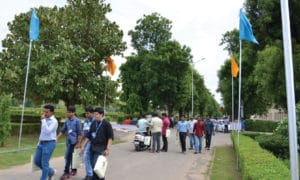 KHDA supports schools, universities, parents, students, educators, investors and government partners to create a high quality education sector focused on happiness and well-being, writes Kalthoom Al Balooshi, Executive Director of Education, Knowledge and Human Development Authority (KHDA), Dubai, for Elets News Network (ENN)
KHDA supports schools, universities, parents, students, educators, investors and government partners to create a high quality education sector focused on happiness and well-being, writes Kalthoom Al Balooshi, Executive Director of Education, Knowledge and Human Development Authority (KHDA), Dubai, for Elets News Network (ENN)
Choices. We make them each and every day. What am I going to have for breakfast, what am I going to wear today, what decisions will I make at work, how will I spend my income, how will I use my time? Choices, choices, and more choices!!! We make major choices and others that are more trivial. What you wear or what you have for breakfast are some of the less important choices we make – although a nutritious breakfast is always an excellent way to start the day. Major choices include the type of career you follow, your choice of partner, and where you live.
One of the major decision points for families coming to Dubai is to choose a school that their children may get admission in. For many parents, ensuring that they have a place for their child in a good quality school is a critical trigger point for if they should decide to move to Dubai or not.
With the increase in capacity provided by the introduction of new schools in Dubai, many more places are now available for parents. Even so, parents are still faced with choosing the type of curriculum, the fee-level and location of the school, choices that are often not needed in their home countries where parents often simply send their child to the nearest public school.
 As the regulator of the private school system in Dubai, where 90% of students attend a private school, we are often asked by parents which school should I enroll my child in.
As the regulator of the private school system in Dubai, where 90% of students attend a private school, we are often asked by parents which school should I enroll my child in.
To assist parents, we have conducted inspections of schools for the past nine years. The detail of these inspections is provided in reports on our website and accessible to all. Parents can look through these reports or use third party websites that collate the inspection results and provide value-added information to parents. Choosing the right school from the diverse variety of schools to suit their child’s interests and match their child’s strengths and capabilities is not easy and many parents deliberate for a long time to ensure that their choice is the best one.
When we ask parents what they want for their children in private schools in Dubai, they generally seek three things. Good academic marks and a safe environment are two oft-cited responses. But the most common response we obtain is that parents want their child to be happy.
Intuitively, parents know that their aim is to ensure their child is happy at the end of the day. Being happy is influenced by how we perceive and interact with the world around us at different stages of our lives. Happiness is as much an input and a process as it is an outcome. And, this has major implications for schools.
Schools don’t need to make a choice between academic teaching practices, results and student well-being. Put simply, children who are happy at school (and in the home) perform better academically, and teachers who are happy deliver better, more engaging lessons.
 Students with greater happiness display more appropriate classroom behaviour, higher school grades, better peer and teacher relationships, better physical health, and greater participation in classroom and extracurricular activities. Those with lower-level of happiness are significantly more likely to report mental health problems, peer victimisation, poor relationships with parents and teachers, and a whole host of negative behaviours.
Students with greater happiness display more appropriate classroom behaviour, higher school grades, better peer and teacher relationships, better physical health, and greater participation in classroom and extracurricular activities. Those with lower-level of happiness are significantly more likely to report mental health problems, peer victimisation, poor relationships with parents and teachers, and a whole host of negative behaviours.
At KHDA, we firmly believe that the happiness and well-being of students, teachers and parents be considered a mandate, not just for today, but for the long-term future of education. We support schools, universities, parents, students, educators, investors and government partners in creating a high quality education sector focused on happiness and well-being.
Children who are happy at school (and in the home) perform better academically, and teachers who are happy deliver better, more engaging lessons. Students with greater happiness display more appropriate classroom behaviour, higher school grades, better peer and teacher relationships, better physical health, and greater participation in classroom and extracurricular activities.
We have undertaken a number of initiatives to support the promotion of positivity, happiness and wellbeing and these include:
Partnering with the International Positive Education Network (IPEN) to create the regional capital of positive education in Dubai to spread the awareness of positive education in schools and promote character and wellbeing alongside academic achievement.
Building a Well-being Campus in Hatta where open-air classrooms will host hundreds of students from across the Emirates, ensuring kids utilise the picturesque mountain landscape and enjoy innovative outdoor activity-based experiences designed to boost character strength and confidence.
Granting Healthy and Happy School Awards which are designed by a cross governmental team to recognise schools in Dubai that are focusing on students’ well-being for the future success of each and every student.
Commencing the Dubai Student Well-being Census in 2017-18 which all students in Grades 6 to 9 will take to provide information back to schools about the wellbeing of their students so that they can target their initiatives
Running a series of ‘What Works’ events each year, a platform created by educators for educators, that promotes collaboration between schools and highlights the strengths of Dubai’s education and share positive practices.
Through providing these opportunities for schools, we, at KHDA, are promoting change by “bringing out from within” the education system so that school leaders and teachers can make positive choices that encourage the holistic development of students.
Parents have chosen to come to Dubai and they have placed their faith in each of our private schools to educate their child in a safe and welcoming environment that encourages learning and character development.
The choices we make, in both our big and small choices, have significant implications for parents and students. It is really all about making the right choices. We want parents to choose happy schools. We want children to be happy students. All this starts with the personal choice that we make each and every day. And for me, I choose to make a positive contribution towards a happier society. I choose happiness.
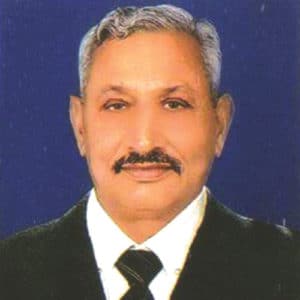 The university has a vision to set up a world class education facility for students pursuing technology, agriculture and livelihood courses, says Brig (Retd) Kartar Singh, Vice Chancellor, Shridhar University, Rajasthan in an interview with Elets News Network (ENN), shares his institutions vision and key achievements along with their unique academic inputs to their students.
The university has a vision to set up a world class education facility for students pursuing technology, agriculture and livelihood courses, says Brig (Retd) Kartar Singh, Vice Chancellor, Shridhar University, Rajasthan in an interview with Elets News Network (ENN), shares his institutions vision and key achievements along with their unique academic inputs to their students.






